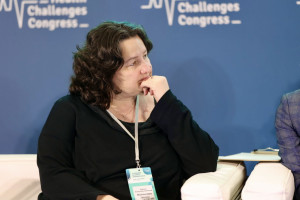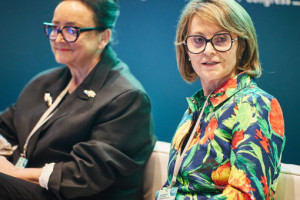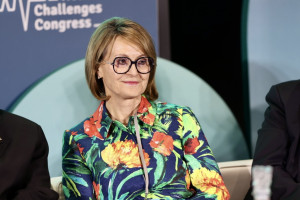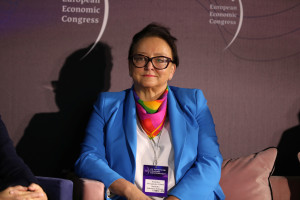Medical needs: from girls to senior policy. Women's Health Forum launches

- Women's health is an area that is not free from political influence. Despite this, many positive changes for patients have been introduced in recent months.
- Many of them concern reproductive health: from financing the in vitro program, expanding prenatal testing, increasing the rate of anesthesia for childbirth to access to emergency contraception.
- However, women's health is not just about pregnancy and motherhood. In recent weeks, new HPV tests have also been introduced to the cervical cancer prevention program, and a comprehensive endometriosis treatment program is to be introduced from July 1.
- The participants of the first Women's Health Forum, which will start today in Katowice, will discuss what has already changed for the better, as well as the problems that are waiting to be solved.
- Experts and guests of this event will look at, among others, the place of women in the state's health policy, the importance of prevention in the activities of the Ministry of Health and the need to ensure women's health safety.
- The Women's Health Forum will be opened by the Minister of Health, Izabela Leszczyna. The event will last until Tuesday, June 10
Women's health is a difficult topic, because it is more susceptible to political influence than any other in medicine. - Politics affects the health of both Polish women and men, but women's health is often more sensitive to political decisions, mainly due to the specific health needs related to female biology (pregnancy, childbirth, menopause), reproductive health issues, challenges related to family care (women are more likely to care for children and the elderly) and due to the varying access to services depending on the place of residence, social status or professional situation - says Prof. Ewa Wender-Ożegowska, national consultant in the field of obstetrics and gynecology, in an interview with Rynek Zdrowia.
On the other hand, many positive changes in this area have been introduced recently. One of the first decisions of the current government was to restore the refund of the in vitro program. It has just turned one year old and, as the Minister of Health recently reported, 1.5 thousand children have already been born thanks to it.
Shortly after taking office, Izabela Leszczyna announced the "Safe, Conscious Me" package, which - as she said - is intended to make women of all ages feel safe when it comes to protecting their health. Many of the solutions announced at the time have already been implemented. Access to prenatal tests has been expanded, regulations have been introduced to improve access to anesthesia during labor , and access to emergency contraception has been made easier - thanks to a pharmaceutical prescription. Work is underway on new standards of perinatal care. Although the law on termination of pregnancy has not changed, the Ministry of Health has developed guidelines explaining how to apply them to dispel any doubts that may arise, and regulations have also been issued to make it easier for patients to exercise their rights.
In recent weeks, new HPV tests have been introduced into the cervical cancer prevention program (genetic tests and liquid cytology), and a comprehensive endometriosis treatment program is to be introduced from July 1.
Although a lot is happening in the area of women's health, there is still much to be done. - We must ensure equal access to all medical services, regardless of place of residence and social status. Women in villages and small towns often have, unfortunately, still limited access to specialists (e.g. endocrinologists, oncologists, gynecologists), to diagnostics (e.g. resonance imaging, genetic testing), to services within the National Health Fund. This requires better organization of the network of facilities, telemedicine and medical transport - lists Prof. Ewa Wender-Ożegowska.
- I see increasingly broader opportunities that we create, which unfortunately we do not fully utilize. I mean access to vaccinations, preventive cytological and mammographic tests. In gynecology, we have very well-developed minimally invasive surgery, oncological treatment. However, in order to take advantage of all this, patients have to go to a gynecologist. This requires health education from the youngest age - adds Prof. Violetta Skrzypulec-Plinta , head of the Department of Women's Health and the Department of Reproductive Health and Sexology at the Silesian Medical University.
The Women's Health Forum will be dedicated to discussing successes and challenges over two intensive days. The event will bring together leading experts from various fields of medicine to jointly discuss current challenges and innovations in women's health care. The inaugural session, attended by Minister Leszczyn, is guided by the question: why does women's health require a multidisciplinary approach and cooperation?
The program includes panels on women's cardiology, women's mental health, autoimmune threats to women, gynecology and urology, hormonal and reproductive health, metabolic diseases, gynecological oncology, and motherhood in the shadow of disease. There will also be discussions on new technologies used for women's health - in the hands of doctors and patients, as well as topics such as rare diseases, obesity and scar treatment.
Copyrighted material - reprint rules are specified in the regulations .
rynekzdrowia










